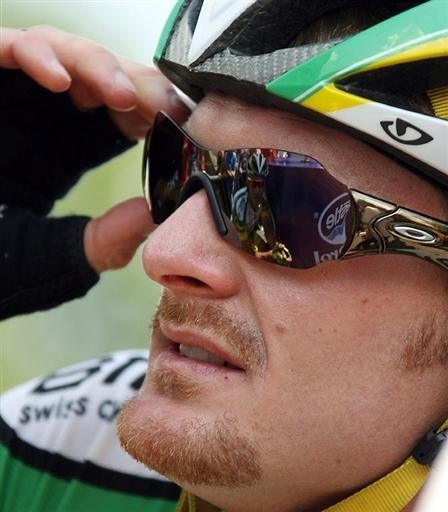Epic Landis "could not be held back"
By Hedwig Kröner in Mâcon Opinions diverged in the press room on the unfolding of Thursday's last...

By Hedwig Kröner in Mâcon
Opinions diverged in the press room on the unfolding of Thursday's last Tour de France mountain stage: with Floyd Landis attacking in the first climb of the day, able to turn such an impressive gear, didn't the rest of the GC teams commit a fatal error in letting him take the lead? Searching for an answer, Cyclingnews asked around within the peloton on the next morning in Morzine.
Polkadot jersey wearer Michael Rasmussen nodded. "It wasn't really up to us to chase Landis, as we're not the ones who have the Tour favourite," he said. "But there are definitely some other teams that made a huge tactical error yesterday - those who had their riders placed second and third on GC [T-Mobile and Team CSC - ed.]."
Then again, could Landis' attack have been just a tad too fast to follow? Cadel Evans, an excellent climber for his part, seemed to think so. "When Floyd went, I just thought 'what the hell is he doing?'," the Davitamon-Lotto racer said. "It tactically didn't seem like a sensible thing to do, but I didn't know he had the legs like that... nobody did! He went so fast from the start, he rode the whole peloton off his wheels! Nobody could follow."
Just one rider actually did: T-Mobile's Patrik Sinkewitz, ordered on the Phonak rider's wheel like a shackle. What did he think during all these kilometres, before getting dropped mercilessly at the foot of the final mountain, the Col de Joux-Plane? "I just thought that he must have had a motor hidden somewhere!" the 2004 Deutschland Tour winner said. "Usually, when you're on somebody's wheel, you can spare some energy - but I just couldn't yesterday. I was constantly in the red. The other riders couldn't follow him, either. He was just extremely fast."
What about the peloton, shouldn't it not have let him go? "Well, that's not what happened," he continued. "The teams behind didn't go soft, either - they knew of the danger Landis represented, and rode hard. But he was just a class stronger yesterday, nobody could hold him back!"
Even if T-Mobile and CSC had started to really chase earlier, wouldn't Landis have been caught? "Maybe they would have raced the first climb faster, but then there wouldn't have been any riders left to hold that pace afterwards," explained Sinkewitz. "That wouldn't have made a difference."
Get The Leadout Newsletter
The latest race content, interviews, features, reviews and expert buying guides, direct to your inbox!
Evans' teammate Chris Horner, himself a climber and race tactics specialist, agreed. "It was epic!," he summed it up. "It was just legendary. Everybody was chasing yesterday. People have said 'T-Mobile should have worked sooner' - but no one could have worked any sooner! We were going as fast as we possibly could! And if we would have been any faster on the climb, there would have been no T-Mobile guys left!
"The only place T-Mobile could have done any work is when they did: through the valley, when they made up some time on Floyd. That was the only place you could go fast. The T-Mobile guys were stuffed just like anyone else. The pace the Caisse d'Epargnes set up in the climb was the fastest we could go."
Horner did evoke one last eventuality to counter Landis' move, but discarded it right away: "One possibility would have been for the Top 10 GC guys to all work together at a 100 percent, and that's it," he said. "But that has never happened in the Tour, and it's never happened in any other race I've done before - and it never will. It was an epic scenario, which I've never seen in my entire career!"